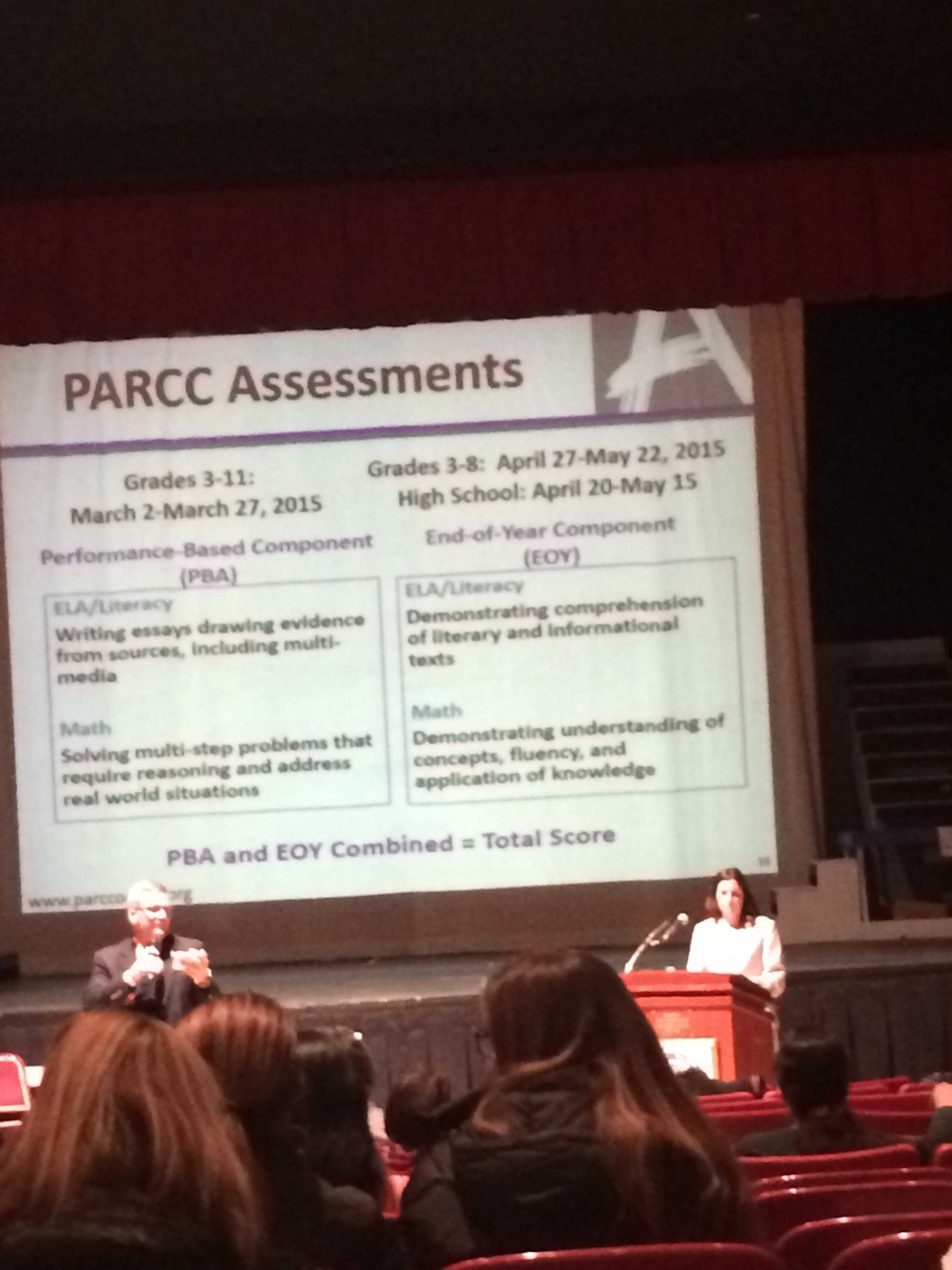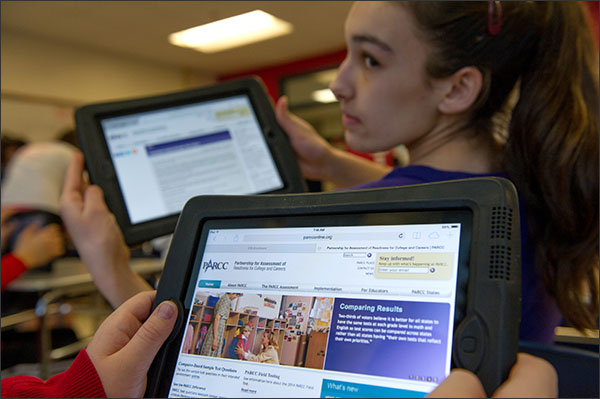New PARCC test will measure students’ academic growth
February 17, 2015
Officially known as the Partnership for Assessment of Readiness for College and Careers exam, PARCC is the innovative and computerized New Jersey standardized test that will replace the NJASK in grades 3-8 and the HSPA test for grades 9-11.
New Jersey switched to the PARCC exam to measure student performance. The state hopes that through the new form of standardized testing, student growth rates will prove optimal.
“There was a change in the federal guidelines, there was the No Child Left Behind Act and the Elementary and Secondary Education Act which provided us a waiver from the No Child Left Behind Act, which had some different guidelines about levels of proficiency” said Dr. Joseph Meloche, Assistant Superintendent of the Cherry Hill School District.

A preview of some basic content for the PARCC test that was shown at a public meeting at Cherry Hill East.
As the PARCC test is a statutory requirement for all students in public schools in New Jersey to take, the Cherry Hill School District must present this test to its students. If Cherry Hill had refused to offer this test, the district could be threatened with some budget cuts, although no one is entirely sure about the extent to what these cuts would be, said Meloche.
The PARCC test for high school students will consist of three ELA units (English Language Arts) and two math units of either Algebra II, Algebra I or Geometry, although the exact content of this test has not been disclosed.
Currently a total of 19 states utilize PARCC for standardized testing, including: Arizona, Arkansas, Colorado, the District of Columbia, Florida, Illinois, Indiana, Louisiana, Maryland, Massachusetts, Mississippi, New Jersey, New Mexico, New York, Ohio, Rhode Island and Tennessee. Kentucky and Pennsylvania are Participating States.
For Cherry Hill East and West eleventh graders, the HSPA had formerly served as a graduation requirement. Unlike the HSPA, the PARCC is not a graduation requirement and can be opted out of, by members of the classes of 2016, 2017 and 2018.
“Kids in grades 9-11 can use other forms of assessment or demonstrate proficiency on other forms of assessment in order to meet their graduation requirement,” said Dr. Meloche.
Students can meet the testing requirement needed to graduate through the PSAT, ACT, or can alternatively use their PARCC score if they wish.
Parents have showed up to community meetings expressing their and their children’s concerns over the difficulty and administration of the test, however Meloche assures that PARCC will not be the only piece of data students will be assessed on in the future.
“It’s one piece of information that we use for kids. There’s no single test that is the be-all and end-all for student performance,” said Meloche.
It’s one piece of information that we use for kids. There’s no single test that is the be-all and end-all for student performance.
— Dr. Joseph Meloche
The results of the first PARCC test will become available to the district in October of 2015. As the PARCC test is supposed to measure student growth, the students and teachers will be evaluated on that and not on the types of scores students achieve, which makes testing fair for all course levels and students with different abilities. Thus, the scores on the PARCC test can help any type of student and teacher improve with what they are doing and let the district know what the schools are doing well and doing poorly on.
“We’ll take a look at what those results are, we’ll look and see if a child did really well or if a child did really poorly and have the individual conversations if there is something we need to do differently,” said Dr. Meloche. “[A student’s PARCC score] may tell us that we need to do more for an individual child in a certain academic area or in testing overall.”
According to Dr. Meloche, a student’s PARCC experience can prove to be a valuable asset to the pupil’s overall learning experience that will help them improve their testing skills and prepare them for the future.
“We live in a lot of ways in a test-driven society, whether it’s the PARCC or the NJASK or the HSPA. We’re always going to have standardized assessments that exist in education and regardless of the field that graduates choose to go into, there’s going to be some sort of assessment that they’re going to have to take…assessments of this type are going to be part of what kids do as they move up as adults,” said Meloche.
